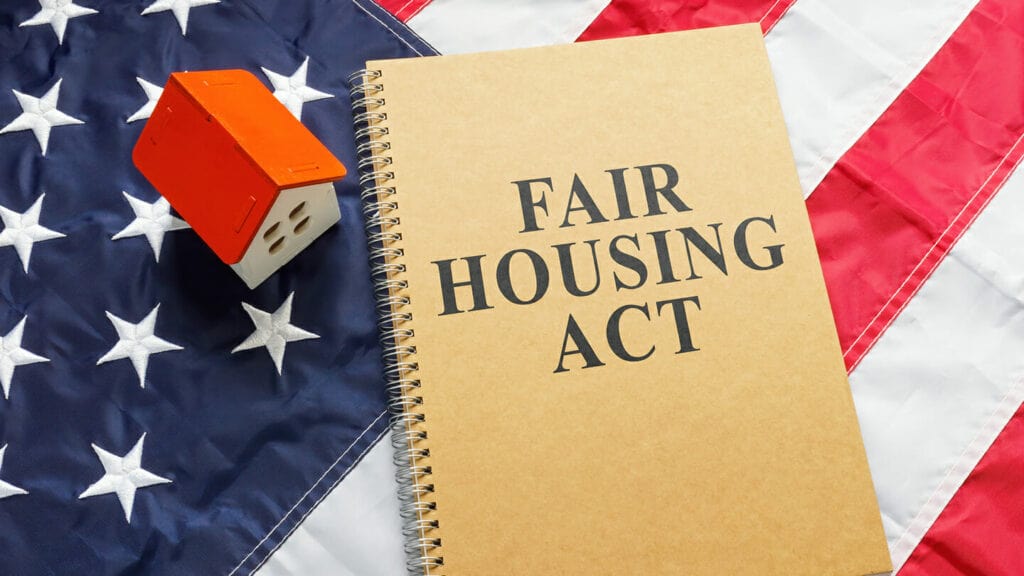Asset Publisher
Why the Fair Housing Act Matters
By Antoinette Smith | 09/10/2019

Increasing proportions of minority households with older adults means that these older adults will face fewer resources and higher mortgage debt, as well as other housing disparities that are often the result of past discrimination
Many people have heard of fair housing, but don’t truly understand their rights under the Fair Housing Act. Whether we are renters or buyers, we should familiarize ourselves with and know the Fair Housing Act so we can better understand federal fair housing policies and laws, and what our rights are.
What is the Fair Housing Act?
The Fair Housing Act states:
It is illegal to discriminate in the sale or rental of housing, including against individuals seeking a mortgage or housing assistance, or in other housing-related activities. The Fair Housing Act prohibits this discrimination because of race, color, national origin, religion, sex, familial status, and disability.
This Act becomes even more important to our aging population if they become disabled and need to think about the possibility of transitioning out of their current home and into a home they can live in and navigate more comfortably. The law requires housing providers to make reasonable accommodations and reasonable modifications for individuals with disabilities. Federal nondiscrimination laws that protect against disability discrimination cover not only tenants and home seekers with disabilities, but also buyers and renters without disabilities who live or are associated with individuals with disabilities. These laws also prohibit housing providers from refusing residency to persons with disabilities, or placing conditions on their residency, based on their requirement of reasonable accommodations or modifications.
Why is fair housing important?
The older adult population is growing at an extraordinary rate. According to the Administration for Community Living, by 2040, there will be around 82.3 million older adults, over twice the number of the older adult population in 2000. Given current racial disparities in wealth, the higher proportion of minority households with older adults also means that these older adults will face fewer resources and higher mortgage debt, as well as other housing disparities that are often the result of past discrimination.
Meanwhile, the prevalence of disability increases with age, and around half of people over 75 have a disability. As we age, we increasingly need housing that is affordable, accessible and well located to maintain dignity and quality of life. If possible, most older adults prefer to age in place in their own homes. If they must relocate for cost savings or accessibility, older adults generally want to do so on their own time table, and not at the impulse of a landlord or on rules based on erroneous, or uninformed opinions or decisions of housing providers. For example, rules that prohibit scooters or companion animals on residential property are prior to the movement for civil rights for people with disabilities.
Older adults all over the country have relied on the Fair Housing Act to ensure that they have equal access to housing that is affordable, appropriate and accessible to them as they age, and that provides the services they need in their communities rather than in an institutional setting. Age is not a protected class under the Fair Housing Act. Nevertheless, older people, like all Americans, are protected from discrimination based on their race, color, national origin, religion, sex, family status or disability.
However, discrimination can sometimes take subtle or hard-to-identify forms, even though the policy that facilitates the discrimination occurs openly and in plain sight. An example of this is the case of Cason v. Rochester Housing Authority. Ms. Cason was a sixty-four-year-old resident in a nursing home desperately trying to get out, since there was no longer a medical need for her to be there. Her doctors agreed her care could easily be provided in an apartment in the community, but Ms. Cason kept receiving a rejection from the senior high rise stating that before she could move in, she had to prove she was “capable of independent living” by living in the community on her own for eighteen months.
How can you file a complaint against fair housing violations?
The Fair Housing Act is essential to ensuring that older Americans have the housing they need to live high quality, independent, financially secure lives. If you believe you have been discriminated against in violation of any of these federal fair housing laws, you can file a complaint with HUD’s Office of Fair Housing and Equal Opportunity (FHEO). FHEO works to eliminate housing discrimination, and enforce, administer and develop federal fair housing policies and laws.
To learn more about the many fair housing laws enforced by FHEO and how those laws can help you, visit www.HUD.gov.
Related Assets
Suggested Reads
Saving For Down Payments
Are you tired of renting? Do your rent payments continue to get higher? Are you interested in purchasing your own home, but feel it’s too difficult to save up the money for a down payment? You are not alone. Many renters feel money is the top reason they haven...
ESOP
Empowering and Strengthening Ohio’s People (ESOP) is a nonprofit HUD-approved housing and financial counseling agency, and program of Benjamin Rose Institute on Aging, which helps adults in all stages of life achieve and maintain financial wellness and housing...
Read More